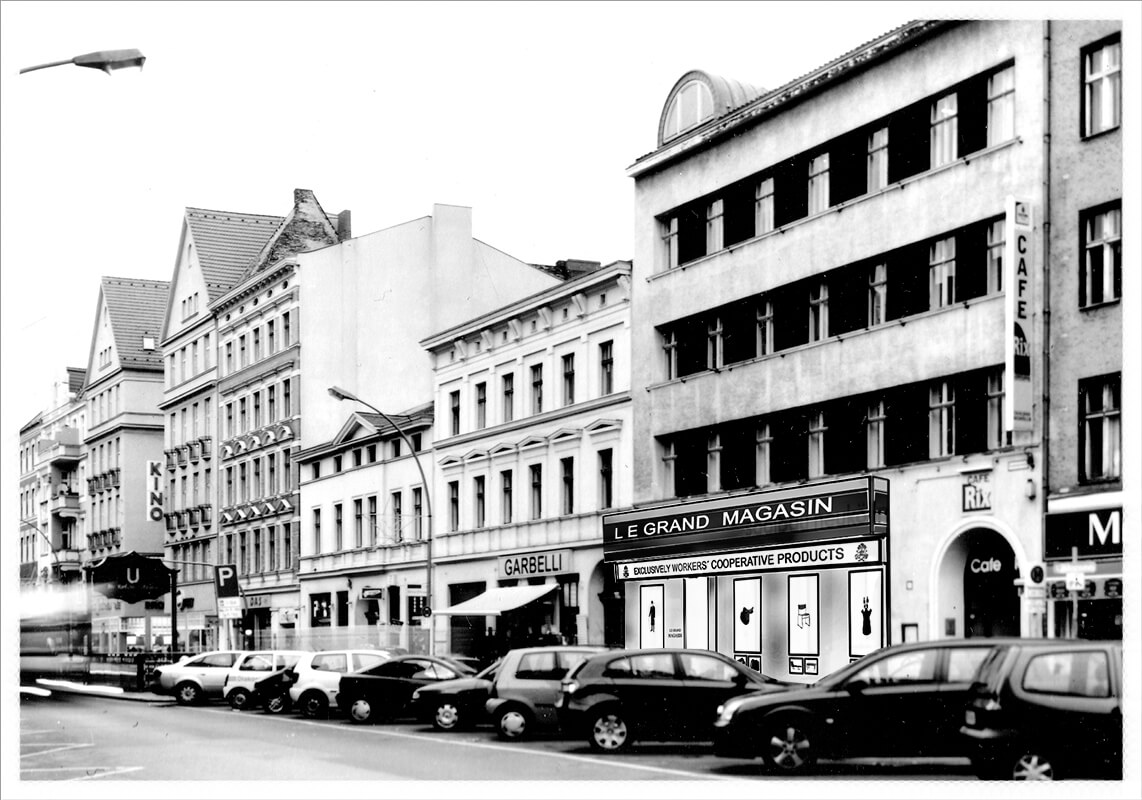
Le Grand Magasin, 2008, Shop front assembly, Saalbaugalerie Neukölln, Berlin
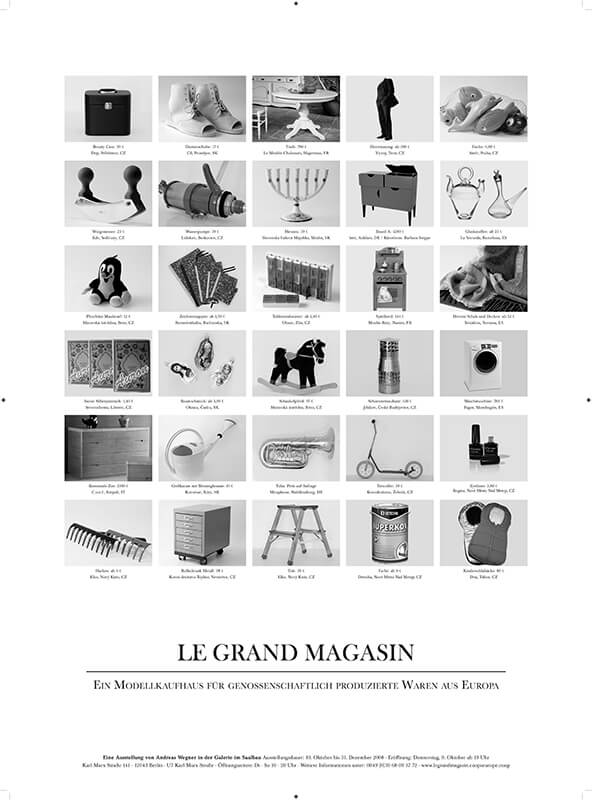
Le Grand Magasin, 2008, Newspaper supplement,
taz Berlin
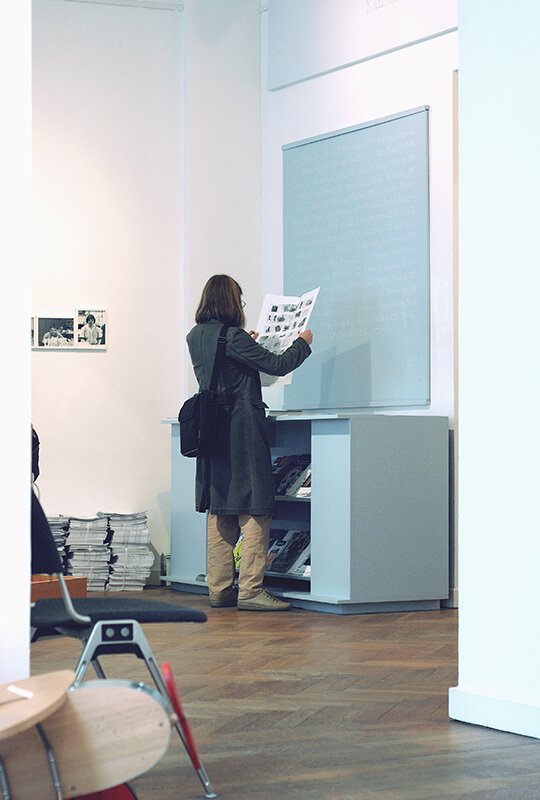
Le Grand Magasin, 2008, Installation view
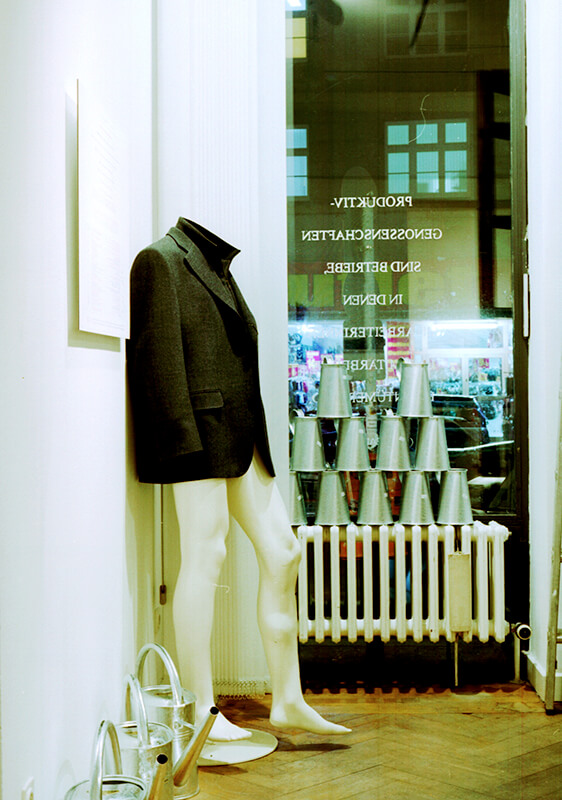
Le Grand Magasin, 2008, Installation view
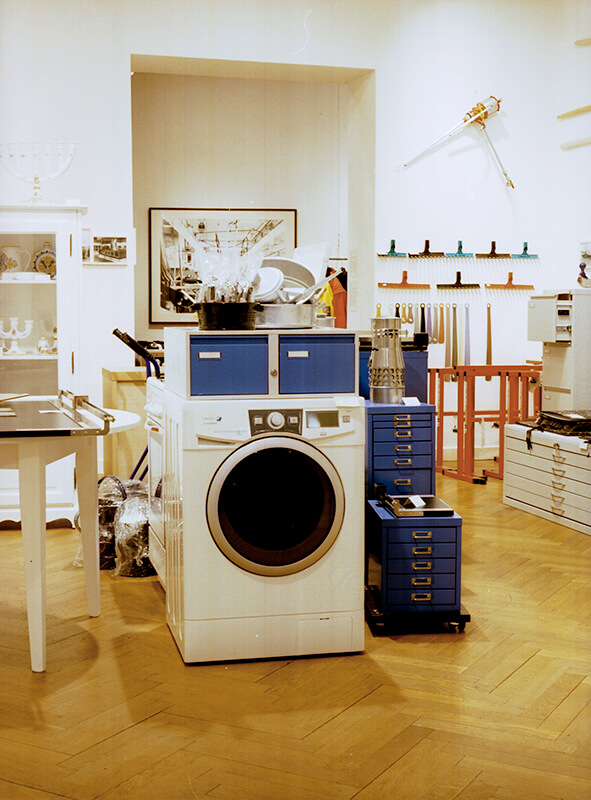
Le Grand Magasin, 2008, Installation view
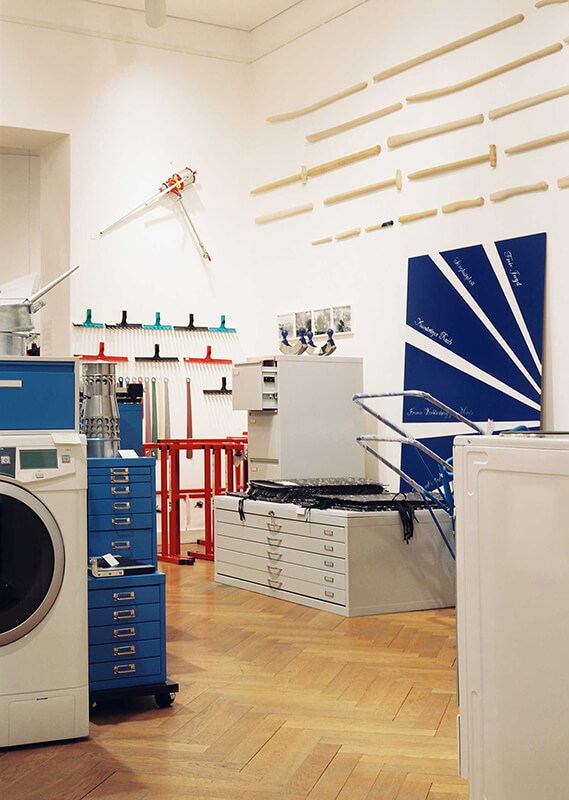
Le Grand Magasin, 2008, Installation view
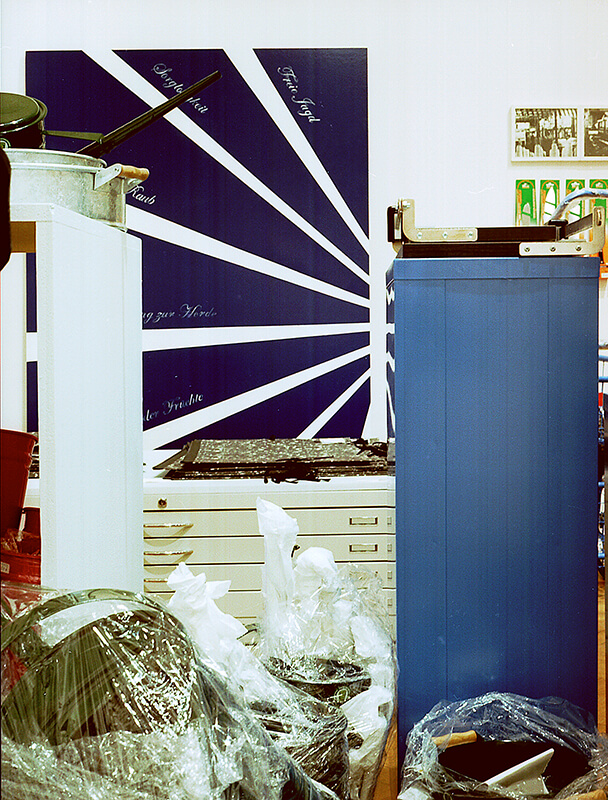
Le Grand Magasin, 2008, Installation view
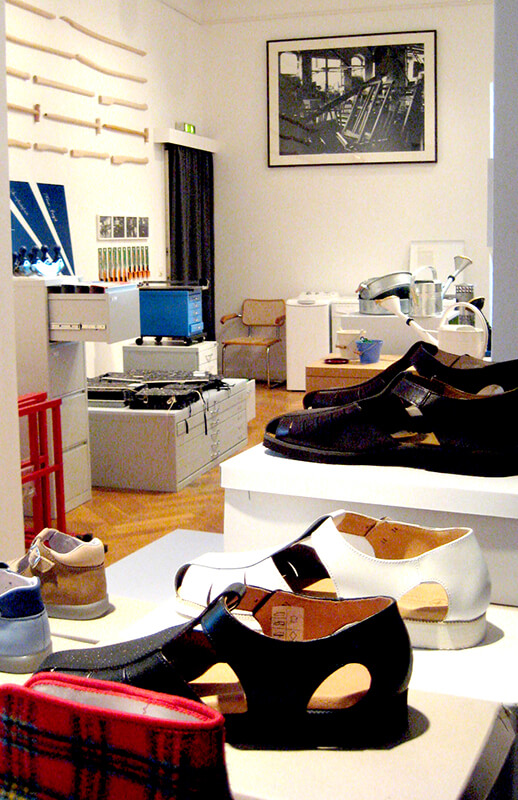
Le Grand Magasin, 2008, Installation view
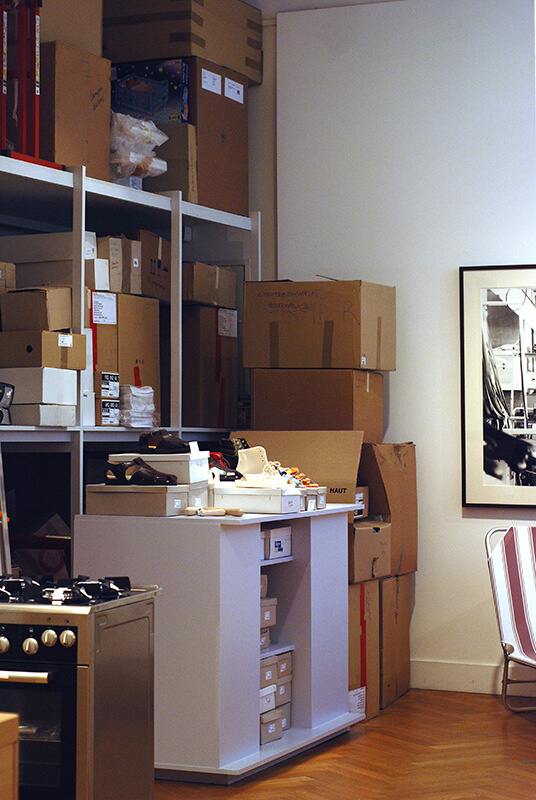
Le Grand Magasin, 2008, Installation view
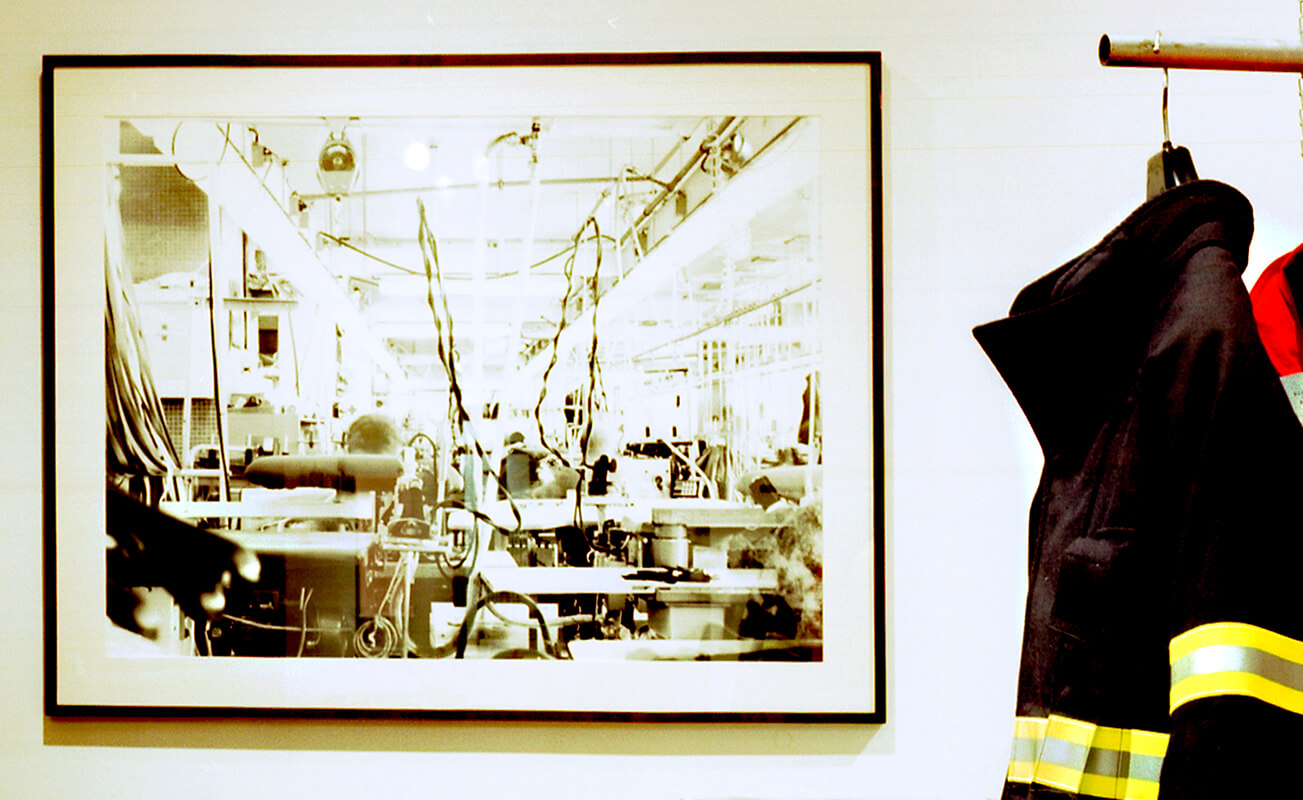
Dup, 2008, Silver gelatin on baryt paper, 110 x 150 cm
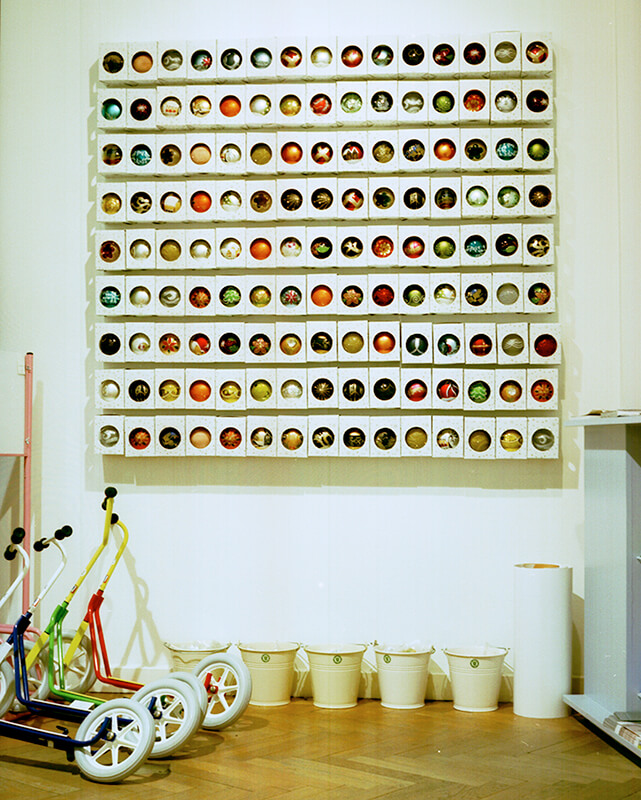
Le Grand Magasin, 2008, Installation view
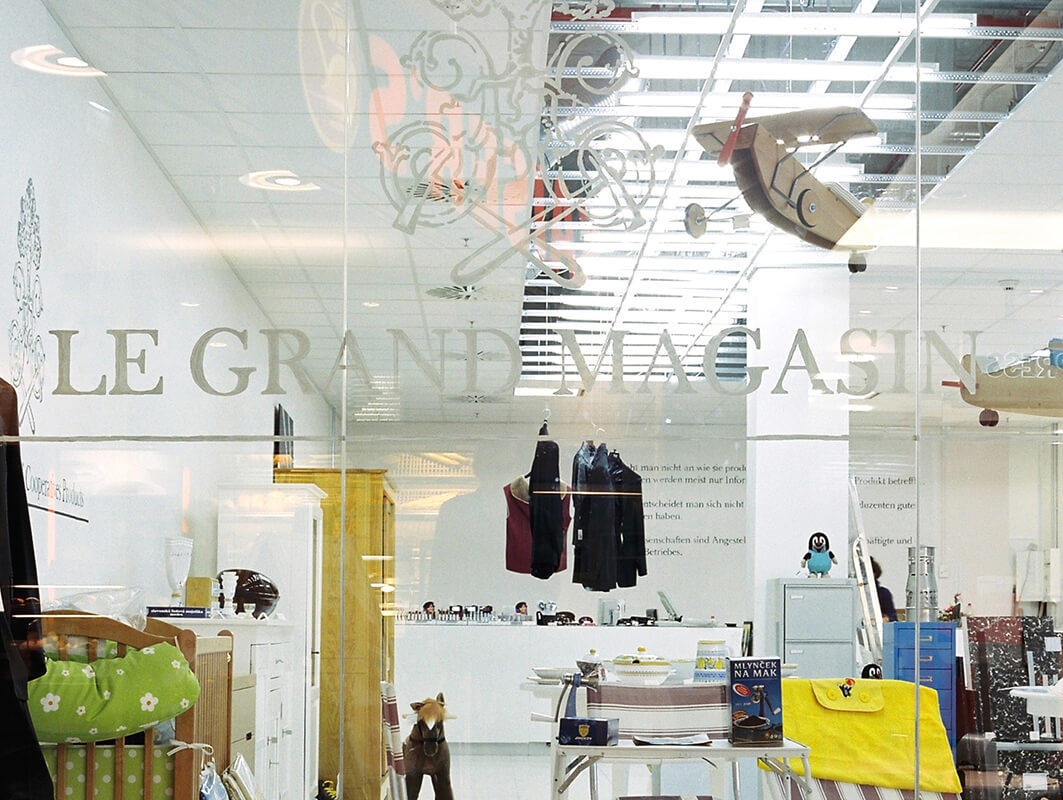
Le Grand Magasin, 2009, Installation view, Hermannquartier
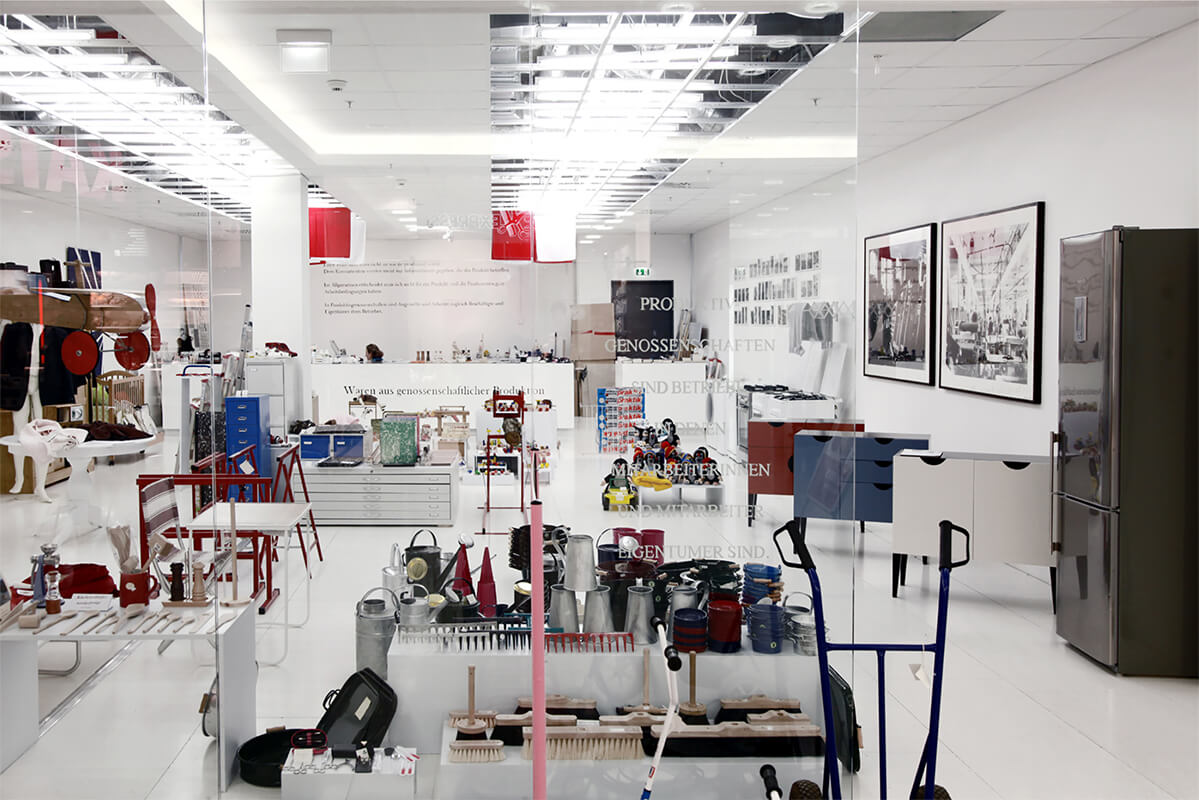
Le Grand Magasin, 2009, Installation view, Hermannquartier
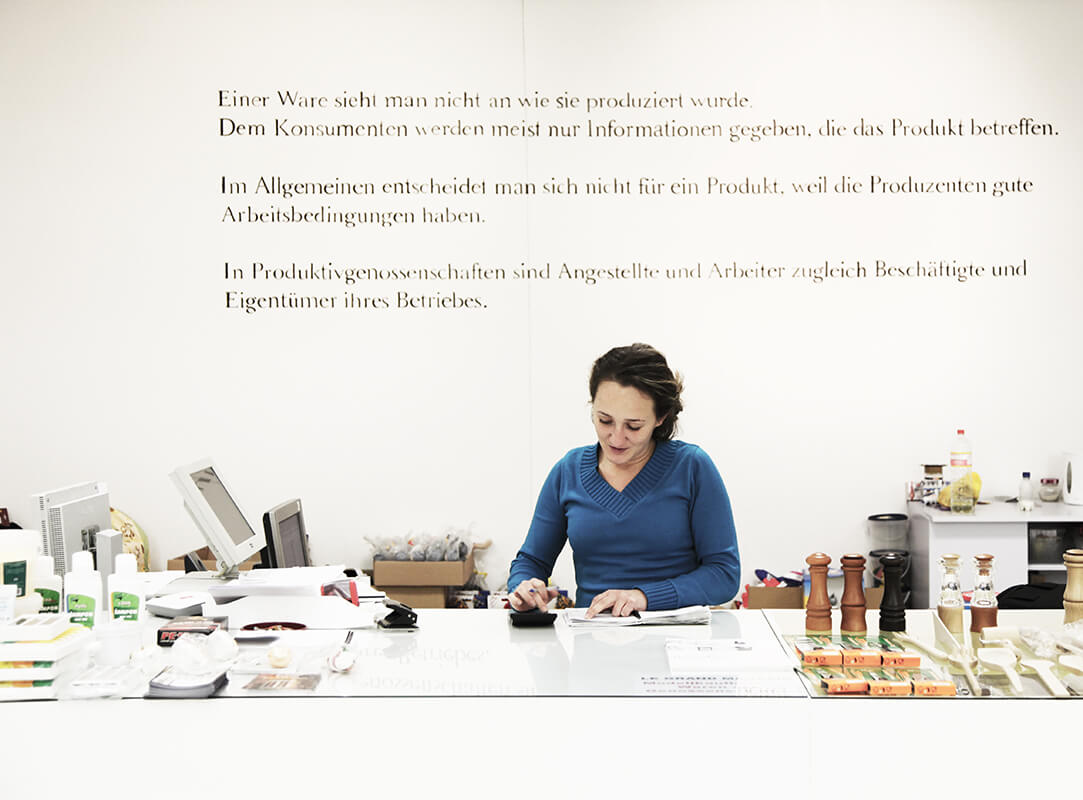
Le Grand Magasin, 2009, Installation view, Hermannquartier
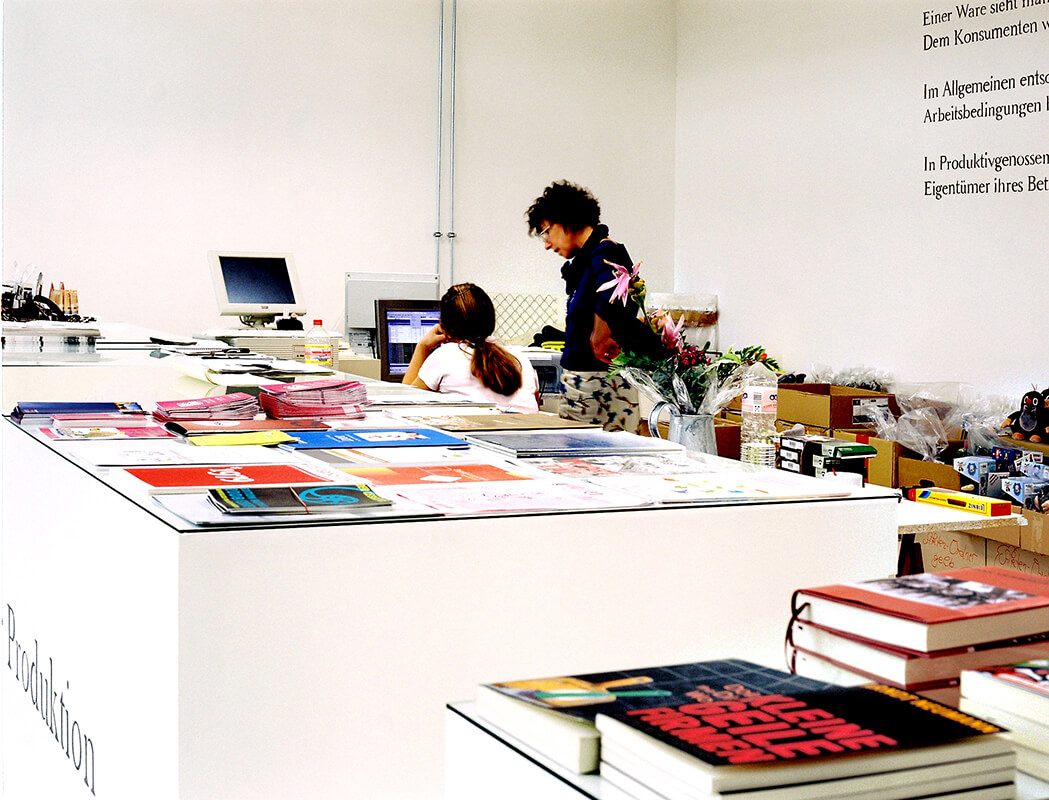
Le Grand Magasin, 2009, Installation view, Hermannquartier
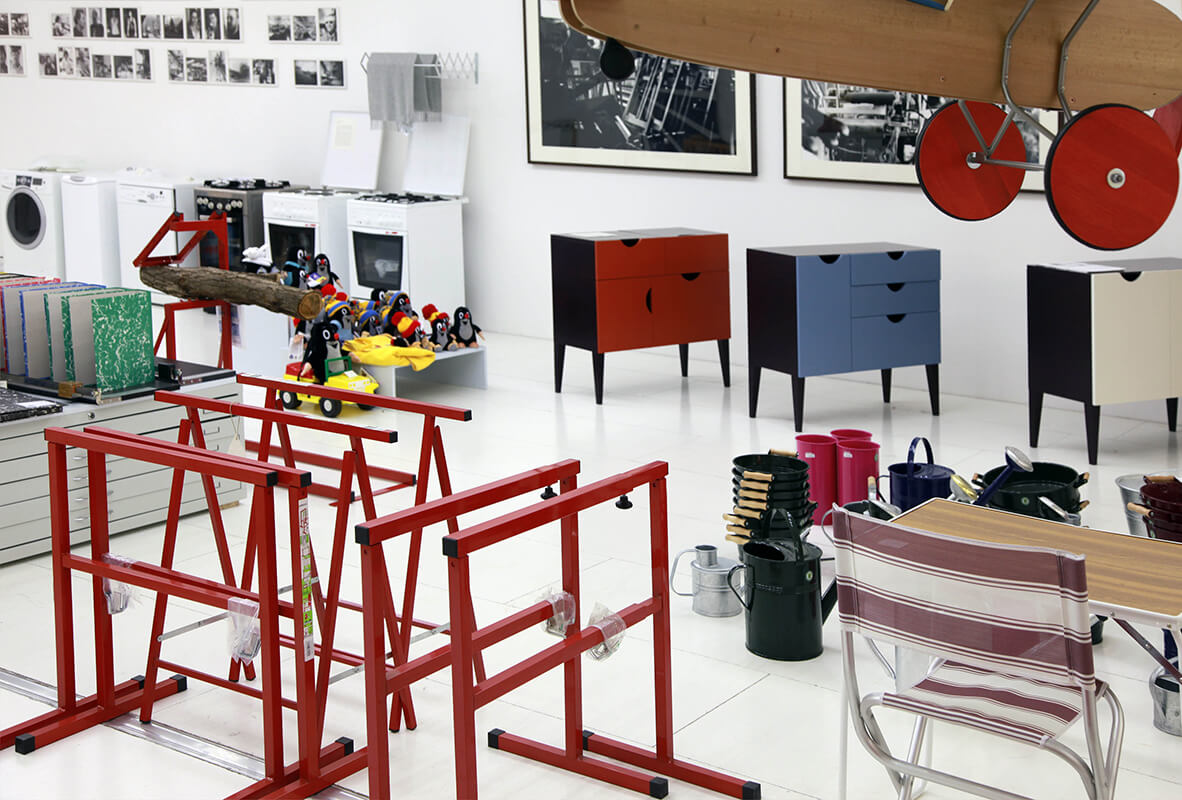
Le Grand Magasin, 2009, Installation view, Hermannquartier
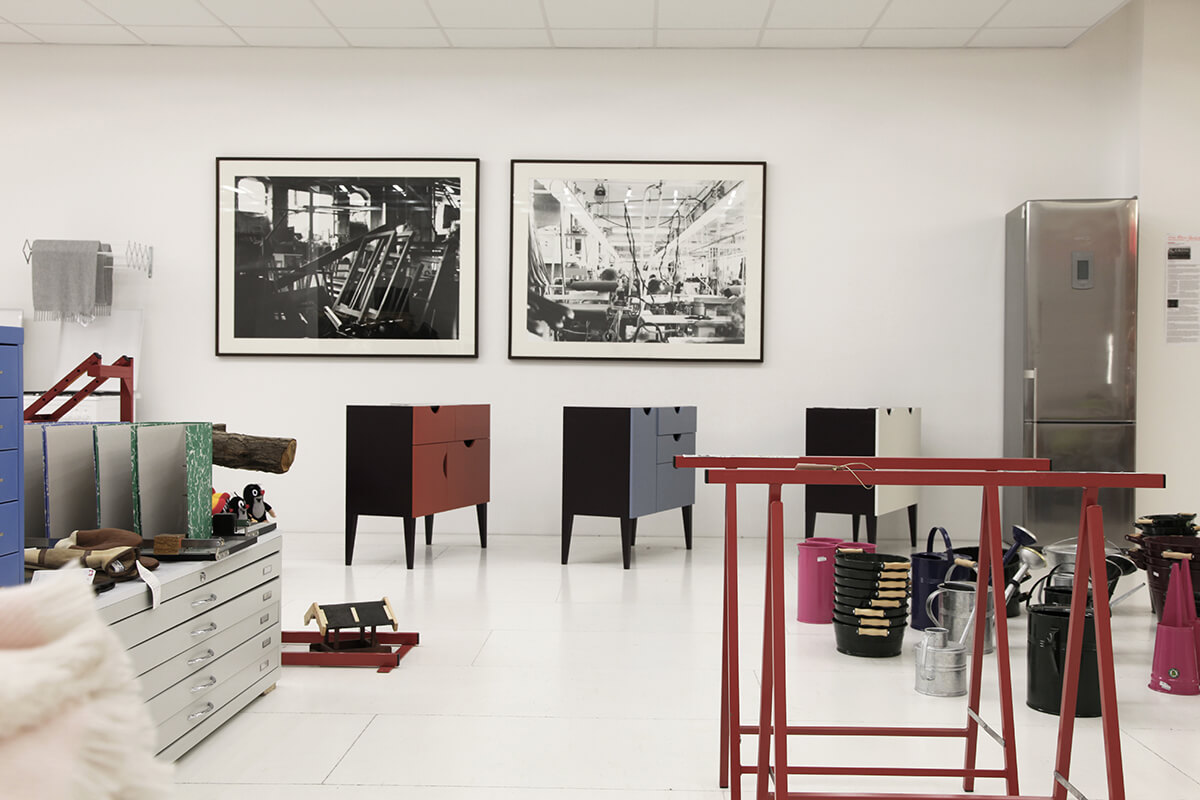
Le Grand Magasin, 2009, Installation view, Hermannquartier
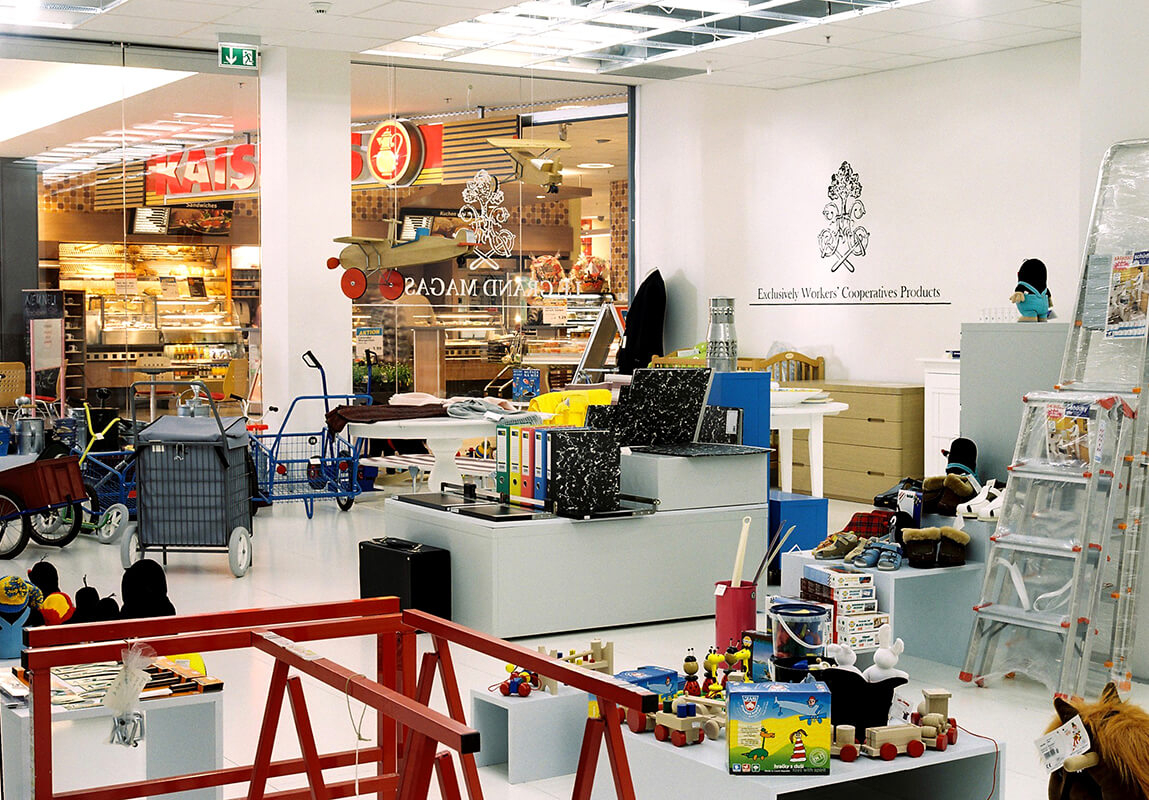
Le Grand Magasin, 2009, Installation view, Hermannquartier
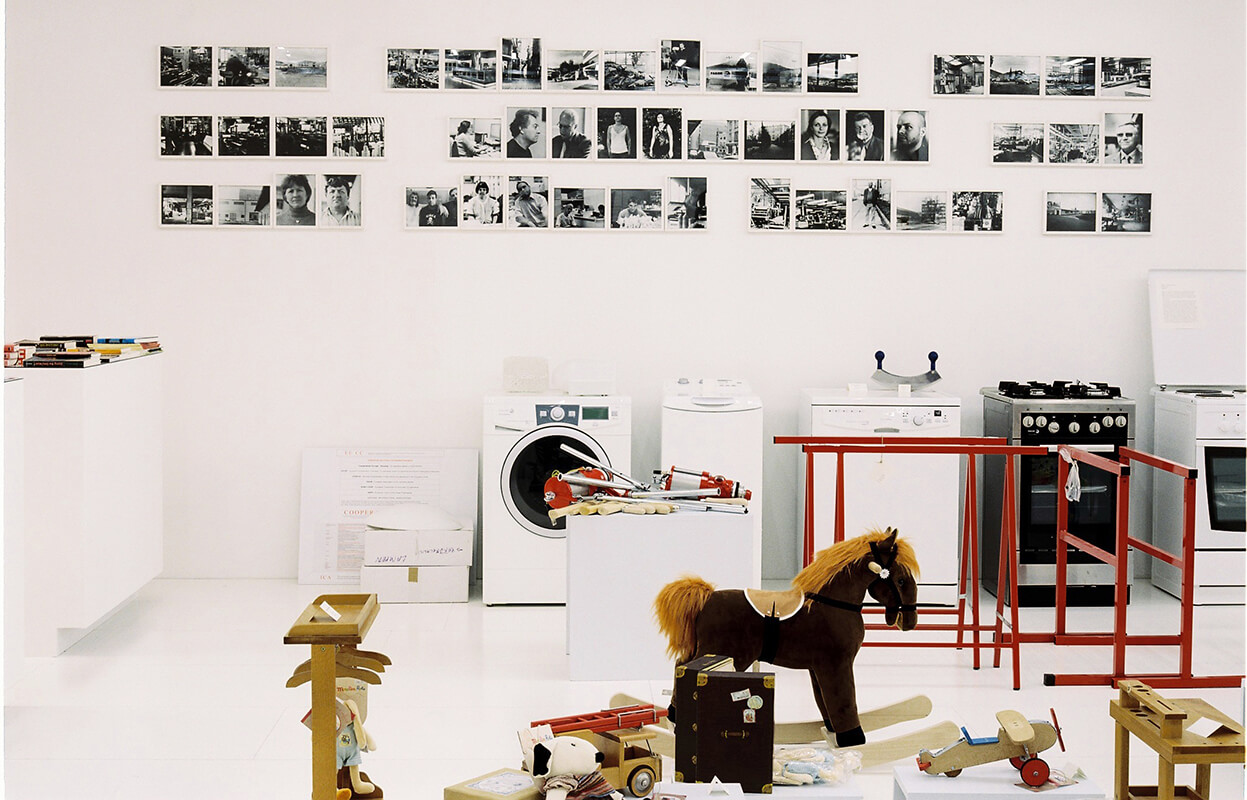
Le Grand Magasin, 2009, Installation view, Hermannquartier
LE GRAND MAGASIN
Ein Kaufhaus als Kunstprojekt in Berlin
(September 2008 – Dezember 2009)
Ein Kaufhaus als Kunstprojekt?
In einem Kaufhaus werden üblicherweise alle künstlerischen Disziplinen unter das Primat der Ökonomie gestellt, d.h. die Künste werden in den Dienst für das Geschäft genommen (z.B. Werbung, Design, Architektur, etc.). In der Ausstellungs- und Verkaufsperformance von Le Grand Magasin ging es darum, dass die Künstler:innen sich in einem umkehrenden Akt das Kaufhaus aneigneten und für Zwecke nutzbar machten, die von der Kunst als relevant erklärt wurden.
In dem temporär für das Projekt eingerichteten Kaufhaus Le Grand Magasin in Berlin Neukölln wurden Waren aus ganz Europa ausgestellt, die von ca. 2000 *Produktivgenossenschaften produziert wurden. Mit einigen der Kooperativen arbeiteten Künstler:innen aus mehreren europäischen Ländern jeweils an dem Ort der Kooperative zusammen. Die Qualifikationen der Künstler:innen wurden eingesetzt zum Nutzen der Kooperativen und die Rahmenbedingungen, die von den Kooperativen bereitgestellt wurden, kamen der Arbeit der Künstler:innen zugute.
Die Fakultät „Art and Design“ der Universität Usti nad Labem (CZ) integrierte Studierende in das Projekt.
Le Grand Magasin wurde in drei europäischen Kunstinstitutionen in (HU) TRAFO House / Budapest, ICA / Dunaujvaros, Galerie Emil Filla / Ústi nad Labem, (CZ) gezeigt. Ein Projekt im Hochschulkontext mit Studierenden der Universität J.E. Purkyne, (Usti nad Labem) (CZ) wurde von Vendula Fremlova betreut. Abgeschlossen wurde das Kunstrojekt mit einem internationalem Kongress im Collegium Hungaricum.
In Kooperation mit den Kuratorinnen Dorothee Bienert, Nikolett Eröss, Vendula Fremlova, Antje Weitzel, Franciska Zólyom sowie mit Rainer Schlüter, Direktor des Dachverbandes für europäische Genossenschaften, Brüssel.
*Produktivgenossenschaften sind Betriebe, in denen die Arbeiter:innen und Angestellten zugleich Inhaber:innen (Träger:innen) und Beschäftigte sind.
LE GRAND MAGASIN
(September 2008 – December 2009)
Why use a department store as an art project? Normally, in a department store, all artistic disciplines become subservient to economics, which is to say that the arts are put into service for business (e.g. advertising, design, architecture, etc.). The exhibition and sales performance of Le Grand Magasin was about the artists appropriating the department store in a reversing act and making it usable for purposes declared relevant by art.
In the department store Le Grand Magasin in Berlin Neukölln, which was temporarily set up for the project, goods from all over Europe were displayed that had been produced by about 2000 productive cooperatives*. With some of the cooperatives, artists from several European countries worked together at the location of the cooperative. The skills of the artists were used for the benefit of the cooperatives and the framework provided by the cooperatives benefited the work of the artists. The results of this collaboration were shown in four exhibitions in three countries, with reference to the local situation in each place. The Department of Art and Design at the University of Ústí nad Labem (CZ) integrated students into the project.
Le Grand Magasin was shown in three European art institutions in (HU) TRAFO House / Budapest, ICA / Dunaujvaros, Gallery Emil Filla / Ústi nad Labem, (CZ). A project in the university context with students from the University of J.E. Purkyne, (Usti nad Labem) (CZ) was curated by Vendula Fremlova. The art project was concluded with an international congress in the Collegium Hungaricum.
In cooperation with the curators Dorothee Bienert, Nikolett Eröss, Vendula Fremlova, Antje Weitzel, Franciska Zólyom and with Rainer Schlueter, director of the umbrella organization for European cooperatives, Brussels.
* Workers’ cooperatives are enterprises in which workers and employees are both proprietors and employees at the same time.
Ein Kaufhaus als Kunstprojekt in Berlin
(September 2008 – Dezember 2009)
Ein Kaufhaus als Kunstprojekt?
In einem Kaufhaus werden üblicherweise alle künstlerischen Disziplinen unter das Primat der Ökonomie gestellt, d.h. die Künste werden in den Dienst für das Geschäft genommen (z.B. Werbung, Design, Architektur, etc.). In der Ausstellungs- und Verkaufsperformance von Le Grand Magasin ging es darum, dass die Künstler:innen sich in einem umkehrenden Akt das Kaufhaus aneigneten und für Zwecke nutzbar machten, die von der Kunst als relevant erklärt wurden.
In dem temporär für das Projekt eingerichteten Kaufhaus Le Grand Magasin in Berlin Neukölln wurden Waren aus ganz Europa ausgestellt, die von ca. 2000 *Produktivgenossenschaften produziert wurden. Mit einigen der Kooperativen arbeiteten Künstler:innen aus mehreren europäischen Ländern jeweils an dem Ort der Kooperative zusammen. Die Qualifikationen der Künstler:innen wurden eingesetzt zum Nutzen der Kooperativen und die Rahmenbedingungen, die von den Kooperativen bereitgestellt wurden, kamen der Arbeit der Künstler:innen zugute.
Die Fakultät „Art and Design“ der Universität Usti nad Labem (CZ) integrierte Studierende in das Projekt.
Le Grand Magasin wurde in drei europäischen Kunstinstitutionen in (HU) TRAFO House / Budapest, ICA / Dunaujvaros, Galerie Emil Filla / Ústi nad Labem, (CZ) gezeigt. Ein Projekt im Hochschulkontext mit Studierenden der Universität J.E. Purkyne, (Usti nad Labem) (CZ) wurde von Vendula Fremlova betreut. Abgeschlossen wurde das Kunstrojekt mit einem internationalem Kongress im Collegium Hungaricum.
In Kooperation mit den Kuratorinnen Dorothee Bienert, Nikolett Eröss, Vendula Fremlova, Antje Weitzel, Franciska Zólyom sowie mit Rainer Schlüter, Direktor des Dachverbandes für europäische Genossenschaften, Brüssel.
*Produktivgenossenschaften sind Betriebe, in denen die Arbeiter:innen und Angestellten zugleich Inhaber:innen (Träger:innen) und Beschäftigte sind.
LE GRAND MAGASIN
(September 2008 – December 2009)
Why use a department store as an art project? Normally, in a department store, all artistic disciplines become subservient to economics, which is to say that the arts are put into service for business (e.g. advertising, design, architecture, etc.). The exhibition and sales performance of Le Grand Magasin was about the artists appropriating the department store in a reversing act and making it usable for purposes declared relevant by art.
In the department store Le Grand Magasin in Berlin Neukölln, which was temporarily set up for the project, goods from all over Europe were displayed that had been produced by about 2000 productive cooperatives*. With some of the cooperatives, artists from several European countries worked together at the location of the cooperative. The skills of the artists were used for the benefit of the cooperatives and the framework provided by the cooperatives benefited the work of the artists. The results of this collaboration were shown in four exhibitions in three countries, with reference to the local situation in each place. The Department of Art and Design at the University of Ústí nad Labem (CZ) integrated students into the project.
Le Grand Magasin was shown in three European art institutions in (HU) TRAFO House / Budapest, ICA / Dunaujvaros, Gallery Emil Filla / Ústi nad Labem, (CZ). A project in the university context with students from the University of J.E. Purkyne, (Usti nad Labem) (CZ) was curated by Vendula Fremlova. The art project was concluded with an international congress in the Collegium Hungaricum.
In cooperation with the curators Dorothee Bienert, Nikolett Eröss, Vendula Fremlova, Antje Weitzel, Franciska Zólyom and with Rainer Schlueter, director of the umbrella organization for European cooperatives, Brussels.
* Workers’ cooperatives are enterprises in which workers and employees are both proprietors and employees at the same time.